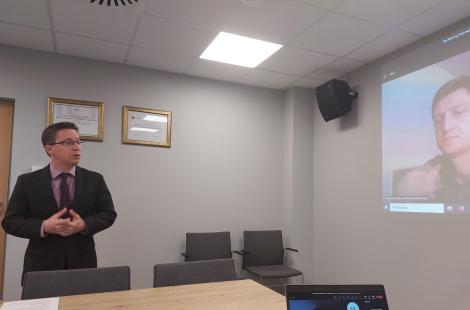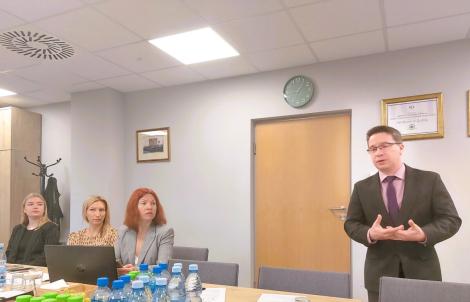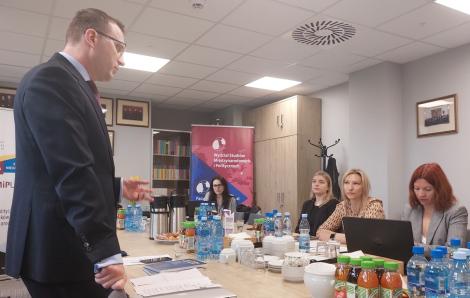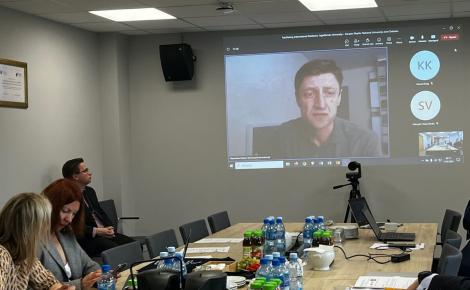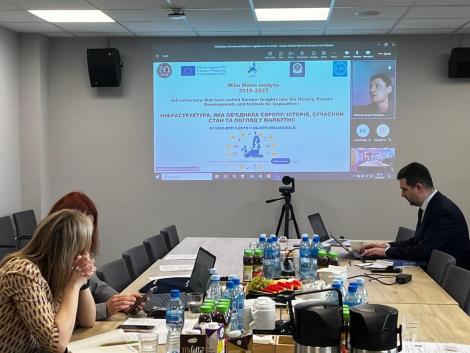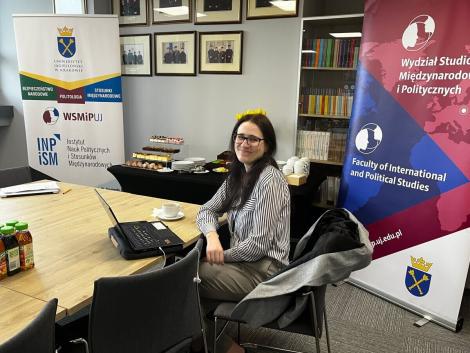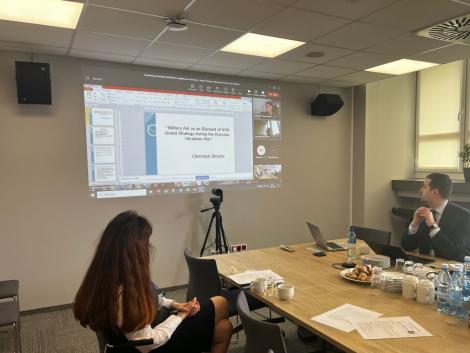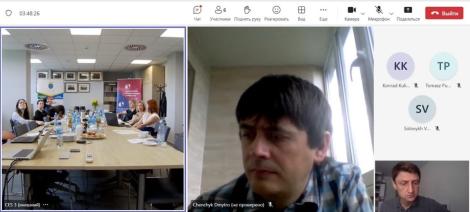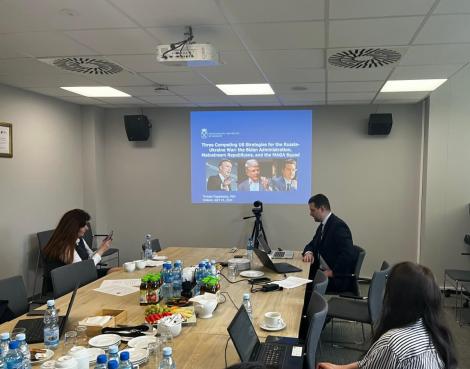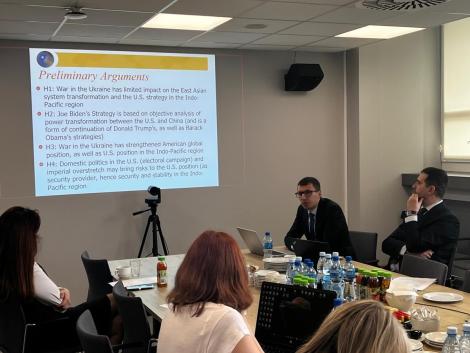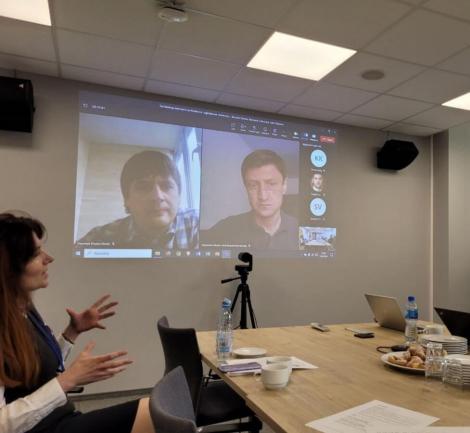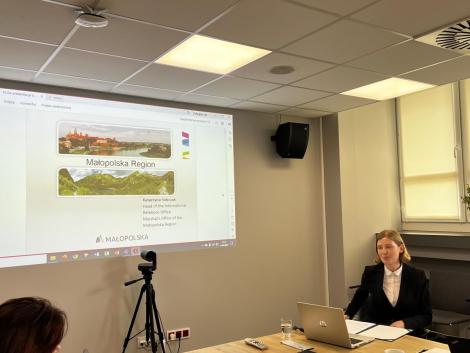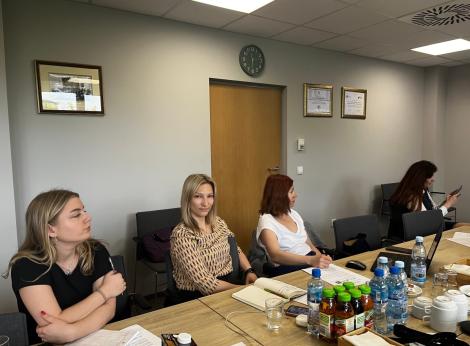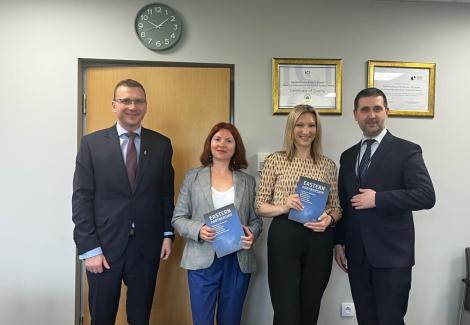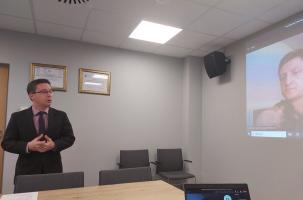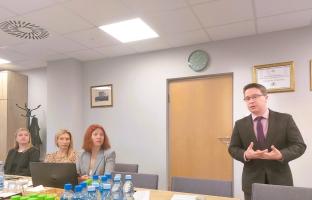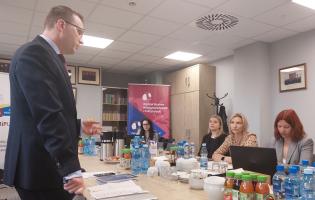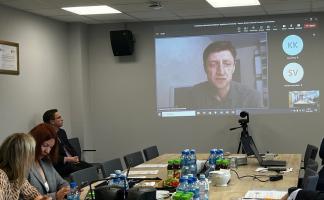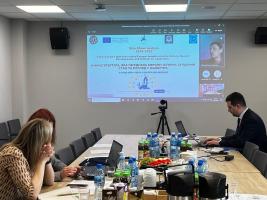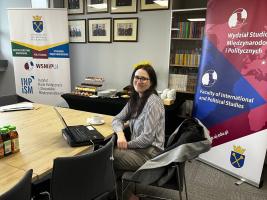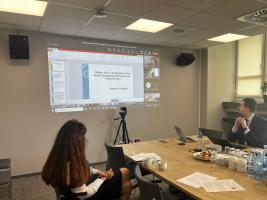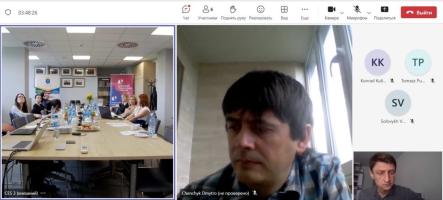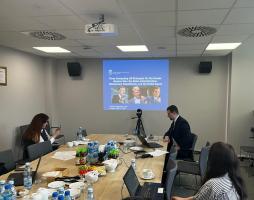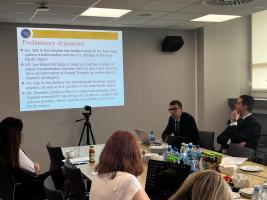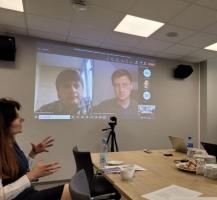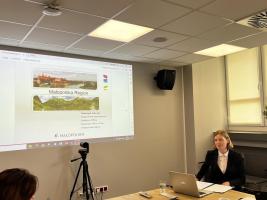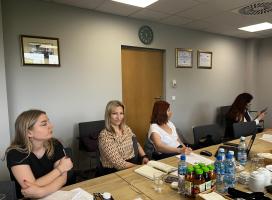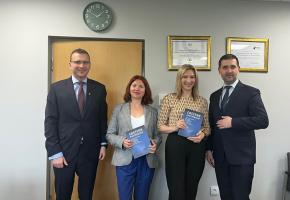 Web Content Display
Web Content Display
 Web Content Display
Web Content Display
 Web Content Display
Web Content Display
Series of Debates on International Relations with Representatives of V. N. Karazin Kharkiv National University
On Monday, April 15, 2024, the JU’s Faculty of International and Political Studies and the JU’s Institute of Political Science and International Relations (INPiSM) organized a series of debates on international relations with the participation of V. N. Karazin Kharkiv National University. It was a hybrid event because — due to the ongoing Russian-Ukrainian war — only a small delegation from Ukraine could come to Krakow.
The event was opened by the Faculty Dean, Professor Paweł Laidler, emphasizing the need to develop Polish-Ukrainian academic cooperation in the context of the difficult situation in which Ukrainian scientists found themselves after the start of the Russian invasion. Then, the Deputy Director of the INPiSM for General and International Affairs, Professor Piotr Bajor, spoke. In his speech delivered in English and Ukrainian, he pointed out that this year's meeting is the practical implementation of the letter of intent on cooperation signed between the Jagiellonian University and the Kharkiv University in May 2022.
As part of the official opening, Professor Dmytro Mykolenko, Head of the Department of International Relations, International Information and Security, spoke on behalf of the Ukrainian side and expressed hope that this meeting would be the beginning of closer cooperation between both universities, which would result in joint teaching and research grants.
In the next three panels, representatives of both universities discussed international issues regarding the EU, the US, and global issues. In the first panel, Professor Mykolenko shared his experience from implementing the Jean Monnet grant, including during the ongoing full-scale Russian-Ukrainian war, and Doctor Olesia Tkachuk from the Jagiellonian University presented her research on the EU's climate policy and indicated the impact of a full-scale Russian-Ukrainian war on this policy.
The panel on the United States was opened by Professor Dmytro Chenchyk with a lecture on the place of military aid in the US strategy towards the Russian-Ukrainian war. Then, Dr. Tomasz Pugacewicz from the Jagiellonian University presented three concepts of the US strategy towards a full-scale Russian-Ukrainian war proposed, respectively, by the Biden administration, the so-called mainstream Republicans, and radical supporters of D. Trump.
In the section on global problems, Professor Nataliia Nepriadkina spoke about the impact of the Russian-Ukrainian war on global trade and the world economy, including presenting the results of her research based on interviews with Ukrainian importers on the difficulties in maintaining supply chains. The second speaker was Professor Vitaliy Solovykh who presented his forecasts regarding the transformation of the international order in terms of the number of its poles in the context of the ongoing Russian-Ukrainian war. Finally, Professor Marcin Grabowski from the Jagiellonian University presented the results of his research on how the Russian-Ukrainian conflict affects security issues in the Indo-Pacific region.
The last, fourth panel was the implementation of the so-called third mission of the university (i.e., cooperation with the socio-economic environment). External stakeholders of the Jagiellonian University in the form of local authorities were invited to discuss their role in the modern world.
This part of the meeting was opened by Yevgen Ivanov, Deputy Head of the Kharkiv Regional Military Administration, who thanked Poland and its citizens for the assistance provided to Ukraine and at the same time described the challenges the Kharkiv Region must face in the face of constant brutal attacks by Russia against the civilian population. Polish listeners were particularly impressed by the region's authorities’ efforts to ensure that the local population can function normally in such difficult conditions.
Next, Inesa Hlushchenko, Head of Foreign Economic Activity and International Relations Department of the Kharkiv Regional Military Administration, spoke. She presented the cooperation agreements signed by said administration with regions from other countries (e.g., the US) and expressed readiness to sign such an agreement with Małopolska. Next, Katarzyna Sobczak, Head of the International Cooperation Team at the Marshal's Office of the Małopolska Voivodeship, spoke and described the potential of Małopolska as a partner for regional cooperation and the regional agreements signed so far with local governments from other countries, including the Lviv Region.






